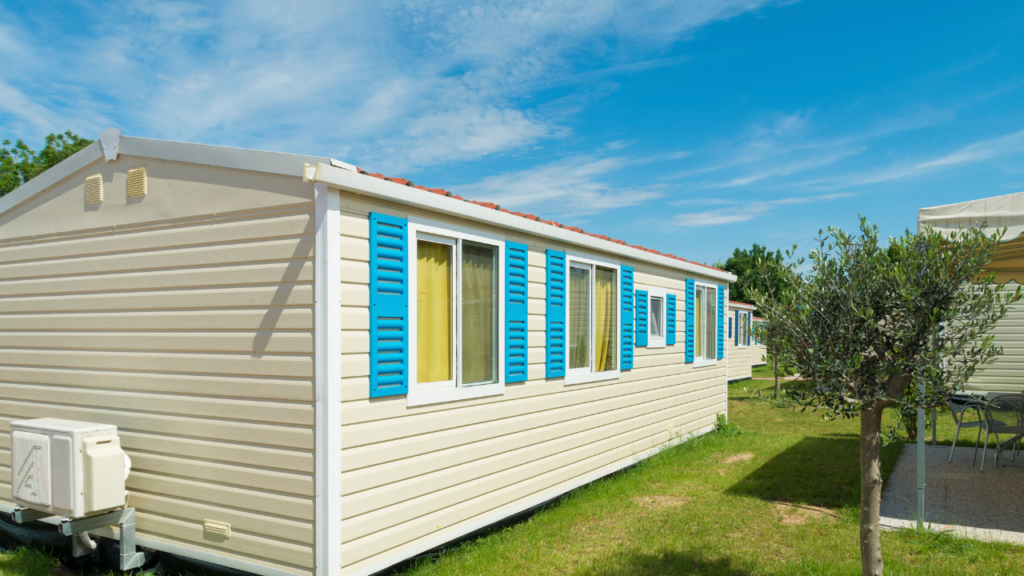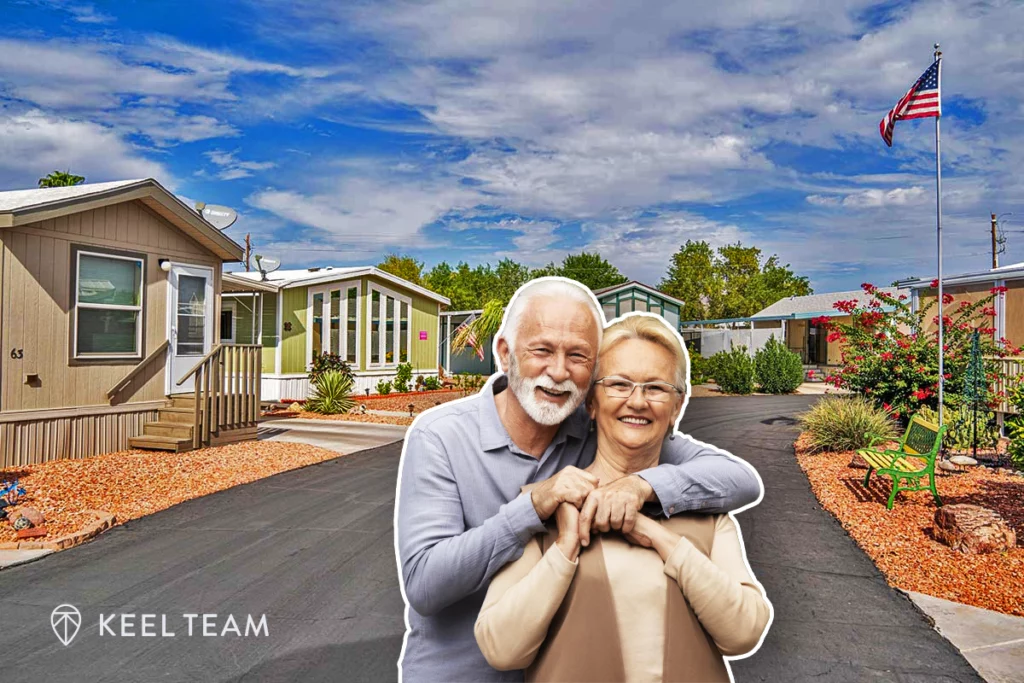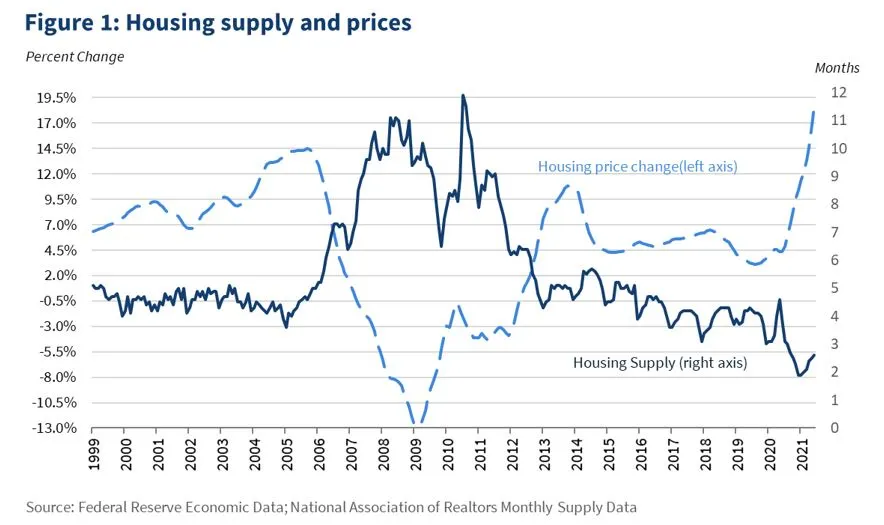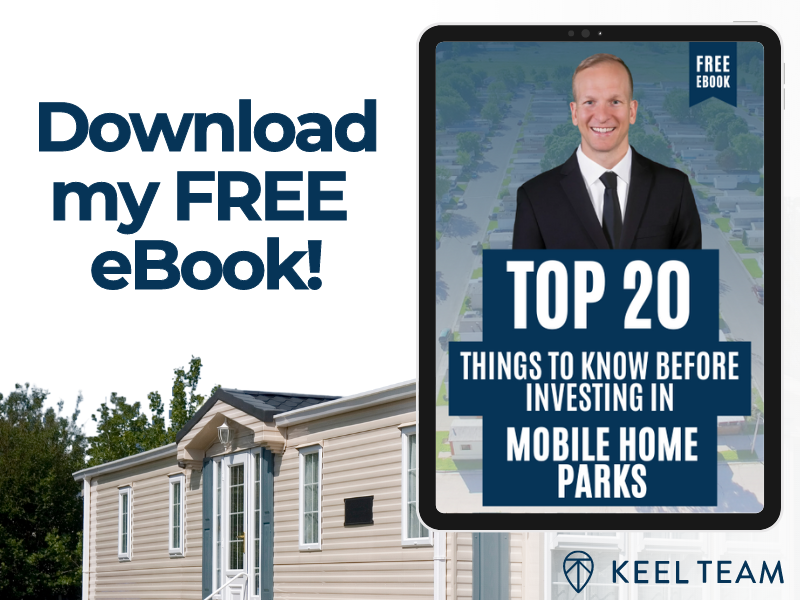Mobile Home Park Investing 101: The Beginner’s Guide
-
 Tristan Hunter - Investor Relations
Tristan Hunter - Investor Relations
The Basics of Mobile Home Park Investing
In recent years, affordable housing has become a national challenge. This issue was further exacerbated after the COVID-19 pandemic. This resulted in many people gravitating towards living in a mobile home park instead of a traditional home.
They’re incredibly affordable and easy to assemble. Additionally, low maintenance makes this an attractive choice for potential investors. They also have additional characteristics that traditional homes don’t have, potentially making them a great investment.
In this post, we’ll explore the basics of mobile home park investing.
Let’s dive in.

What’s Mobile Home Park Investing?
A mobile home park consists of manufactured homes placed on a plot. They usually come with connections to essential utilities like water and sewer. While these houses are designed to be mobile, owners usually set them in a semi-permanent manner. The trailer hitches are usually covered and skirting is added. The homes are arranged closely together on individual lots, often referred to as “pads.”
A small mobile home park consists of 10 to 25 lots. Investors buy the property and rent the land and essential utilities like water, gas, and electricity. Unlike traditional homes, buying a mobile home park is a commercial real estate investment opportunity.
What To Consider In A Mobile Home Park Investment?
When investing in a mobile home park, focus on the location (MSA) or city. Also, look at the utility setup, and the average age of the homes in the community. These factors help you assess how to potentially increase the investment’s value and its ability to generate revenue.
Seek out communities priced below market value. Neglected properties often present opportunities for upgrades and potential cash flow.
Selecting the right community around the property is crucial. A safe area with strong job opportunities nearby typically attracts better tenants. Being in a secure neighborhood with good employment prospects generally encourages tenants to stay. This can potentially boost the profitability of your mobile home park investment.
Tips On Buying The Right Community
Finding the right mobile home park is crucial to possibly getting maximum ROI. A few things you can look for in a mobile home park may include:
Growing Population Areas
A growing population usually means more potential tenants. An increasing population typically indicates that people are willing to live in an area. Investing in a mobile home park in a growing market may give you access to a large amount of potential tenants.
Mom And Pop Trailer Parks
Mom-and-pop communities are mobile home parks owned generally by individual owners. They are usually baby boomers who own one community, typically using this as a retirement vehicle. Around 60% of mobile home parks are mom-and-pop-owned communities.

Avoid 5-Star Trailer Parks At First
The whole point of investing in mobile home parks is affordability. 5-star mobile home parks typically have lower margins for investors. Value-add parks are what we recommend initially because there is more meat on the bone and an opportunity for you to potentially increase your income. 5-star mobile home parks generally have higher rent, and come with amenities that have higher insurance costs, such as pools and community centers. Value-add all-age communities do not typically come with additional amenities that may you have to estimate additional expenses for.
Cap Rates
Our current goal is to buy a mobile home park and increase the income so that it becomes a 10% cap rate or higher. After owning the property for a few years, you can expect the cap rate to rise to around 10%, typically buying from a 6-8% cap rate. The focus on maintaining a minimum 10% cap rate and the potential for it to rise further, reflects an investment philosophy centered on careful risk assessment and value optimization. It suggests an approach that prioritizes sustainable, long-term financial performance over mere property ownership, particularly relevant in the specialized field of mobile home park investing.
Understanding the 10% Cap Rate:
Definition of Cap Rate: The net operating income divided by the purchase price. That metric is typically gauged for all commercial real estate.
A cap rate is a metric used in commercial real estate to measure the risk and potential return on an investment. A 10% cap rate means that the investor can expect a 10% annual return on the investment before accounting for taxes, changes in value, and other financial factors. In the context of mobile home park investing, this 10% cap rate could be considered a healthy return, reflecting a good balance between risk and reward.
Priority on Income Over Cap Rate or Ownership
Ways to possibly increase income through value-add initiatives:
- Submetering water/sewer
- Billing back for storage
- Billing back for trash
- Increasing rents
The statement emphasizes that the focus should be on increasing income rather than just owning the property or on the cap rate. This perspective encourages investors to carefully assess the potential income and expenses associated with a property, ensuring that it meets the desired return on investment. Simply owning a property without paying attention to the cap rate could lead to underperformance and financial disappointment.
Expectation of Cap Rate Increase:
The statement also suggests that, after owning the property for a few years, the cap rate you should be aiming for is 10%. The interest rate and cap rate are correlated; meaning if we pay a 7% interest rate with the bank, and the mobile home park is at a 10% cap rate, then we have a 3-point spread between the interest rate and cap rate, which will generate a 20% cash-on-cash return per year. This could be due to various factors such as improvements in management efficiency, increases in rent, reductions in expenses, or overall market appreciation. Achieving a 10% cap rate represents an even higher potential return, reflecting either a decrease in perceived risk or an increase in the property’s net operating income.
Are you looking for more information on mobile home park investing? Download our FREE eBook and learn expert insights from Andrew Keel!
Benefits Of Investing In Mobile Home Parks
There are several pros to investing in mobile home parks, including:
Increasing Demand For Affordable Housing
Affordable housing is one of the fastest-growing and in-demand commodities of our time. With around 60 million people making $20,000 a year, affordable housing remains in high demand.
Amidst the ongoing rise in affordable housing shortages, numerous mobile home parks hold the potential to accommodate additional homes on their land, presenting an opportunity for mobile home park investors to contribute significantly to the housing supply by developing under-utilized communities.
.

“National Shortage of Affordable Rental Housing. The U.S. has a shortage of 7.3 million rental homes affordable and available to renters with extremely low incomes – that is, incomes at or below either the federal poverty guideline or 30% of their area median income, whichever is greater.”
National Low Income Housing Coalition
Limited Competition
Mobile home parks are often discarded for their reputation, generally resulting in an investment opportunity with low competition. Many traditional real estate investors overlook this sector, often perceiving it as less glamorous or less profitable compared to other investment avenues like retail commercial properties or upscale multi-family apartment areas. This lack of attention typically leads to reduced competition, allowing those who specialize in mobile home parks to potentially find more favorable deals.
Moreover, the barrier to entry can be relatively high, requiring specialized knowledge about the management and regulation of these communities, further limiting the pool of potential investors.
The limited competition may also lead to less pricing pressure, allowing savvy investors to negotiate better purchase terms. As cities grow and land becomes more scarce, the fixed supply of mobile home parks could drive further interest in this niche market, potentially making early entry a beneficial long-term strategy. In sum, the specific characteristics and misconceptions about mobile home park investing contribute to limited competition, presenting potential opportunities for those willing to specialize in this area of real estate investment.
Stable investment
A common misconception about mobile home parks is that the tenants move around a lot. However, in the past, mobile home parks have been very stable and have historically offered a predictable profit.
How To Start Investing In Mobile Home Parks
There are several ways you can invest in mobile home parks, including online marketplaces, like:
- Loopnet: This is the largest online listing service for commercial real estate, including mobile home parks.
- Keel Team: We provide hands-off passive investment opportunities for investors who are looking to make an entry into the mobile home park real estate niche.
- Mobile Home Park Store: This is one of the largest specialty sites for mobile home parks, with over 325 mobile home parks available.
- Reonomy: This is a newer platform, but it’s incredibly user-friendly and has over 50 million commercial properties.
- CoStar: This is a robust site with several analytical features for searching mobile home parks for sale.
Learn more about mobile home park investing.
Interested in learning more about mobile home park investing? Get in touch with us today to find out more.
To Wrap It Up
Investing in mobile home parks presents a distinct opportunity in the commercial real estate realm. Unlike managing traditional apartment complexes, mobile home park investors own the land while residents own and care for their individual homes. This setup has resulted in reduced operating expenses and property management fees.
These mobile home parks often open doors for property’s income, and can potentially increase the investor’s monthly income. I hope this guide will help you with your mobile home park investing journey.

Tristan Hunter - Investor Relations
View The Previous or Next Post
Subscribe Below 👇






